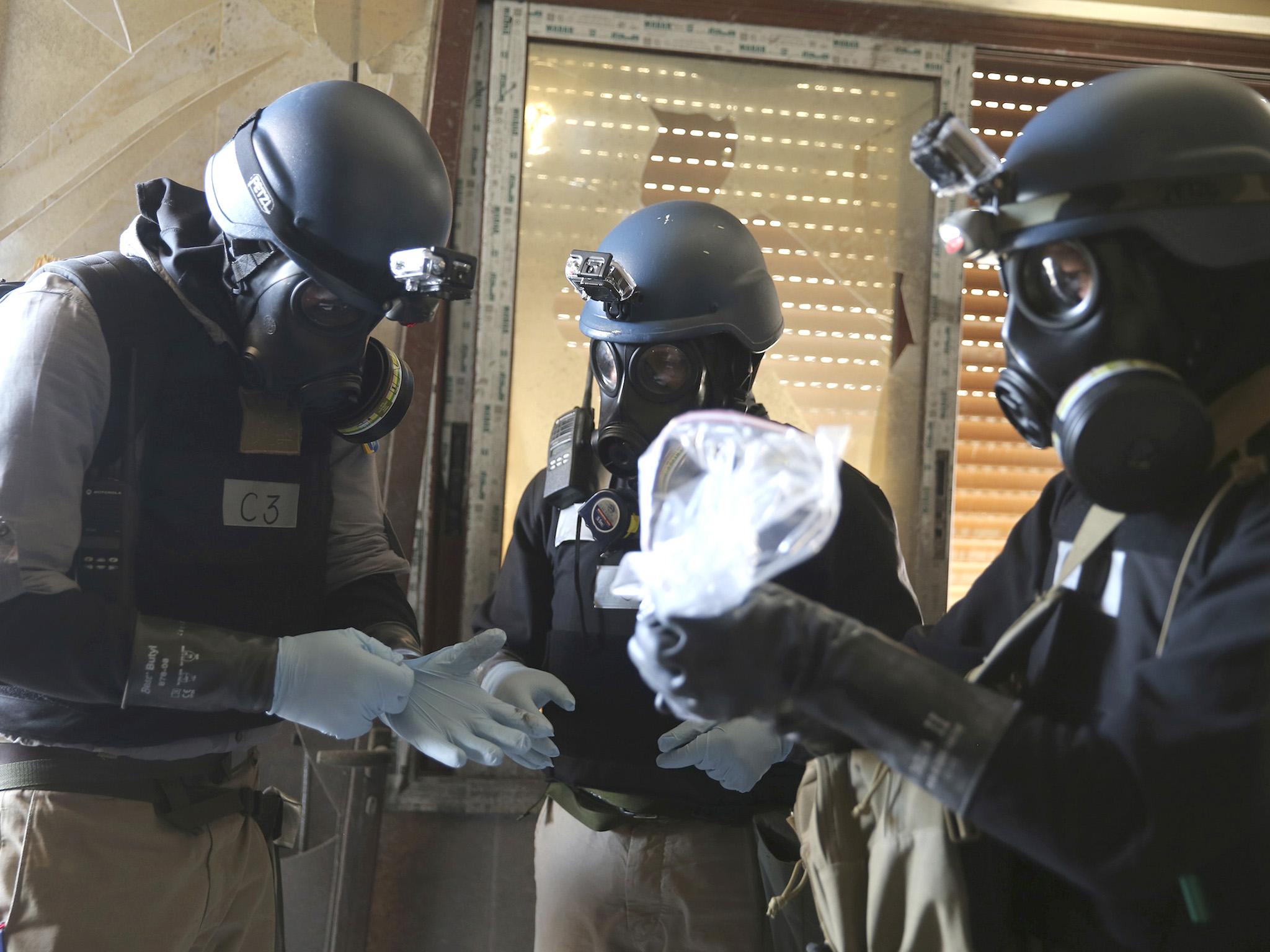I helped Syrian children after the Ghouta chemical weapons attack. Five years on, it's time for these war crimes to be prosecuted
Rescue teams entered affected houses and evacuated all those inside with no time to examine them individually. None of them wore protective material; none of them had any

Your support helps us to tell the story
From reproductive rights to climate change to Big Tech, The Independent is on the ground when the story is developing. Whether it's investigating the financials of Elon Musk's pro-Trump PAC or producing our latest documentary, 'The A Word', which shines a light on the American women fighting for reproductive rights, we know how important it is to parse out the facts from the messaging.
At such a critical moment in US history, we need reporters on the ground. Your donation allows us to keep sending journalists to speak to both sides of the story.
The Independent is trusted by Americans across the entire political spectrum. And unlike many other quality news outlets, we choose not to lock Americans out of our reporting and analysis with paywalls. We believe quality journalism should be available to everyone, paid for by those who can afford it.
Your support makes all the difference.Five years ago today, in the early hours of the morning, chemical weapons were dropped on eastern and western Ghouta, an area just outside Damascus.
Rockets fell on Ghouta, releasing sarin gas that contaminated more than 7,000 people and killed a total of 1,300 – the worst chemical attack on Syria to date.
On that horrible day, we all became medics. Though I’m a trained dentist, I remember running to the hospital to help where I found a scene worse than any nightmare. Brave civilians came to the hospitals and volunteered to do anything – operate water pumps to wash the gas off the victims’ bodies, supply fuel, and even evacuate casualties. The attack was so massive in its scale that all these volunteers still weren’t enough to care for everyone.
Rescue teams entered affected houses and evacuated all those inside with no time to examine them individually. None of them wore protective material; none of them had any. Ambulances arrived at hospitals only to find them full. Drivers would drop off some of the affected and drive the rest to other medical centres, looking for space. In a chemical weapons attack, around a third of all contaminated people will need intensive care. We only had 18 ventilators in the whole of Ghouta. Amid the chaos, families were scattered between hospitals and burial centres, and everybody was looking for everybody.
Three days after the attack, when people lost hope of finding more survivors, they started asking about the dead. Some of them – including children – were buried without being identified.
Inside and outside of Syria, news agencies were busy covering the chemical attacks. Investigators from the United Nations were just a few miles away in nearby Damascus, there to investigate an earlier chemical weapons assault. They found evidence that sarin gas, an internationally banned weapon, was used on Ghouta but did not assign blame.
Throughout 2013 and until now, chemical weapons have been used against the Syrian people by the Assad regime and Isis. After a particularly terrible attack on Douma on 7 April 2018, in which more than 40 people died, the United Nations Security Council voted on three resolutions addressing the use of chemical weapons in Syria. Each time they failed, owing to the splits between Russia and the western nations on the council.
In the wake of the Security Council’s failure, representatives of 28 countries met in France to discuss chemical weapons. By that point, there had been at least 190 chemical attacks in Syria, a figure that has now jumped to 200. Is this the Syria that the international community wants?
The Fact-Finding Mission of the Organisation for the Prohibition of Chemical Weapons has, since 2013, investigated the use of chemical weapons in Syria and issued 68 documents and seven resolutions as well as receiving 29 statements from member states about chemical weapons attacks in Syria. It has interviewed hundreds of witnesses, collected thousands of clues and analysed hundreds of thousands of pieces of information at the time as the UN Human Rights Council’s Commission of Inquiry condemned Assad’s deployment of chemical weapons in Syria 25 times.
None of this has been able to stop the repeated use of chemical weapons on Syrian civilians. Condemnation and fine words can only go so far. Now action must be taken to bring those who have used chemical weapons to justice.
Justice might not return a buried child to his grieving mother in Ghouta, but seeing the perpetrators of war crimes behind bars may convince her that the massacre will not be repeated again.
The United Nations’ International, Impartial and Independent Mechanism, which was established to investigate and prosecute the people responsible for the most serious crimes in Syria, must collect all the reports and information on the use of chemical weapons in Syria and present them to any entities also working to bring the Syrian regime to account. Only this will make the Syrian regime think twice before using chemical weapons again,
But is there an international will to do that? Or shall we witness chemical attacks against innocent civilians again and again and again?
Mohamad Katoub is an advocacy manager at the Syrian American Medical Society
Join our commenting forum
Join thought-provoking conversations, follow other Independent readers and see their replies
Comments